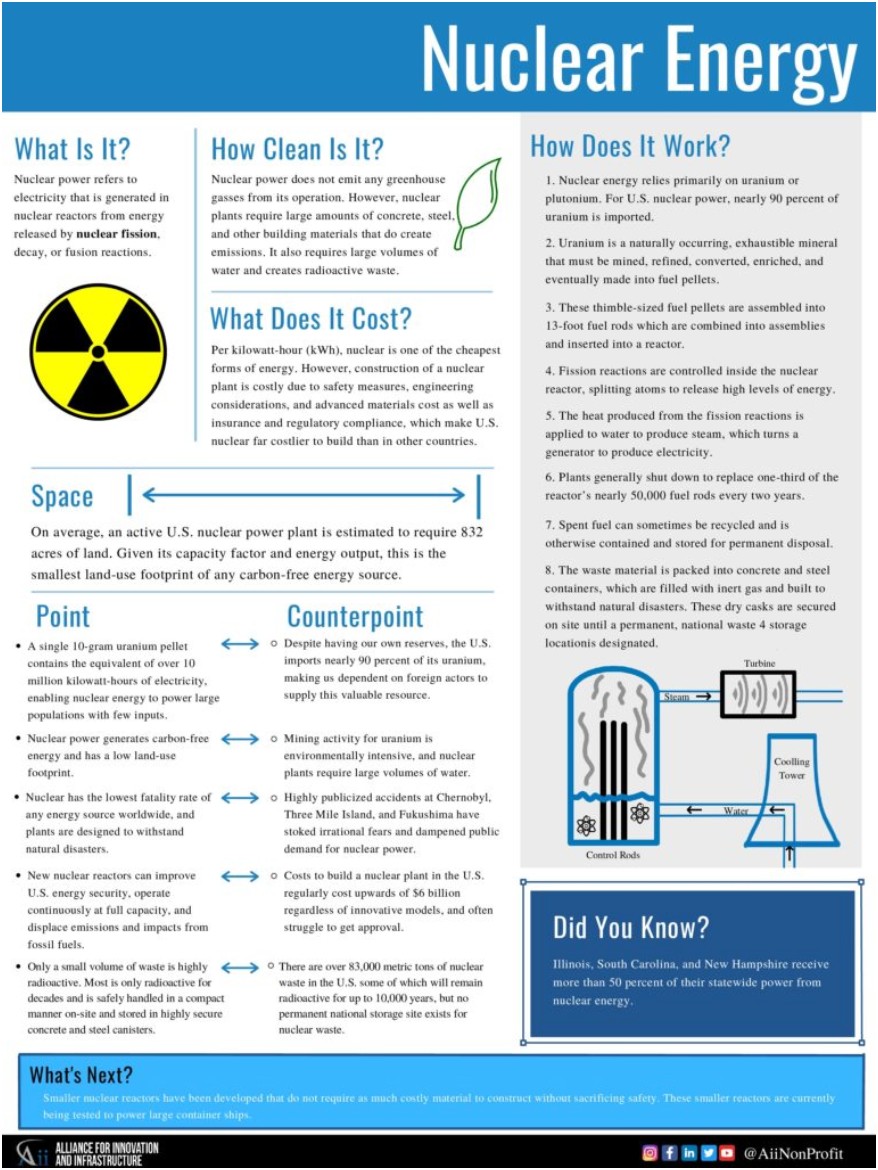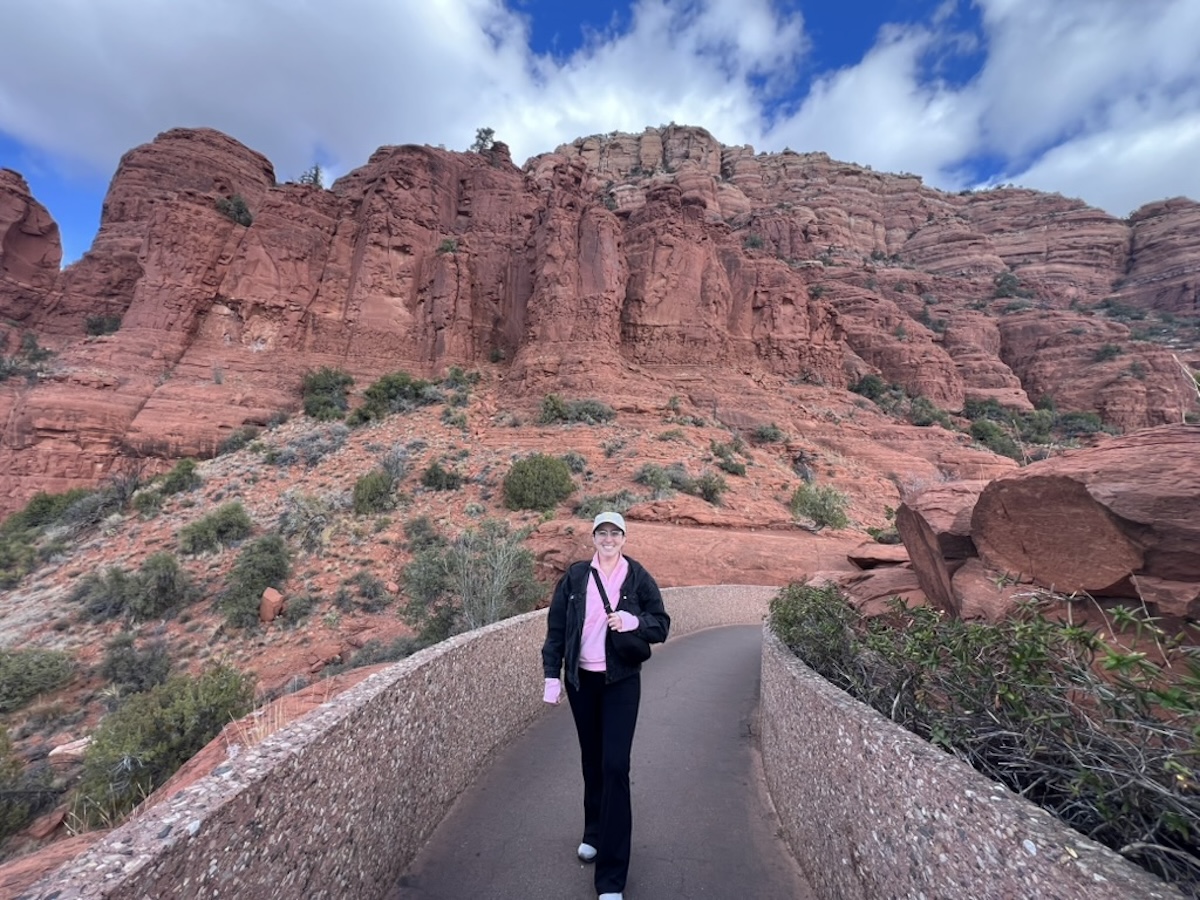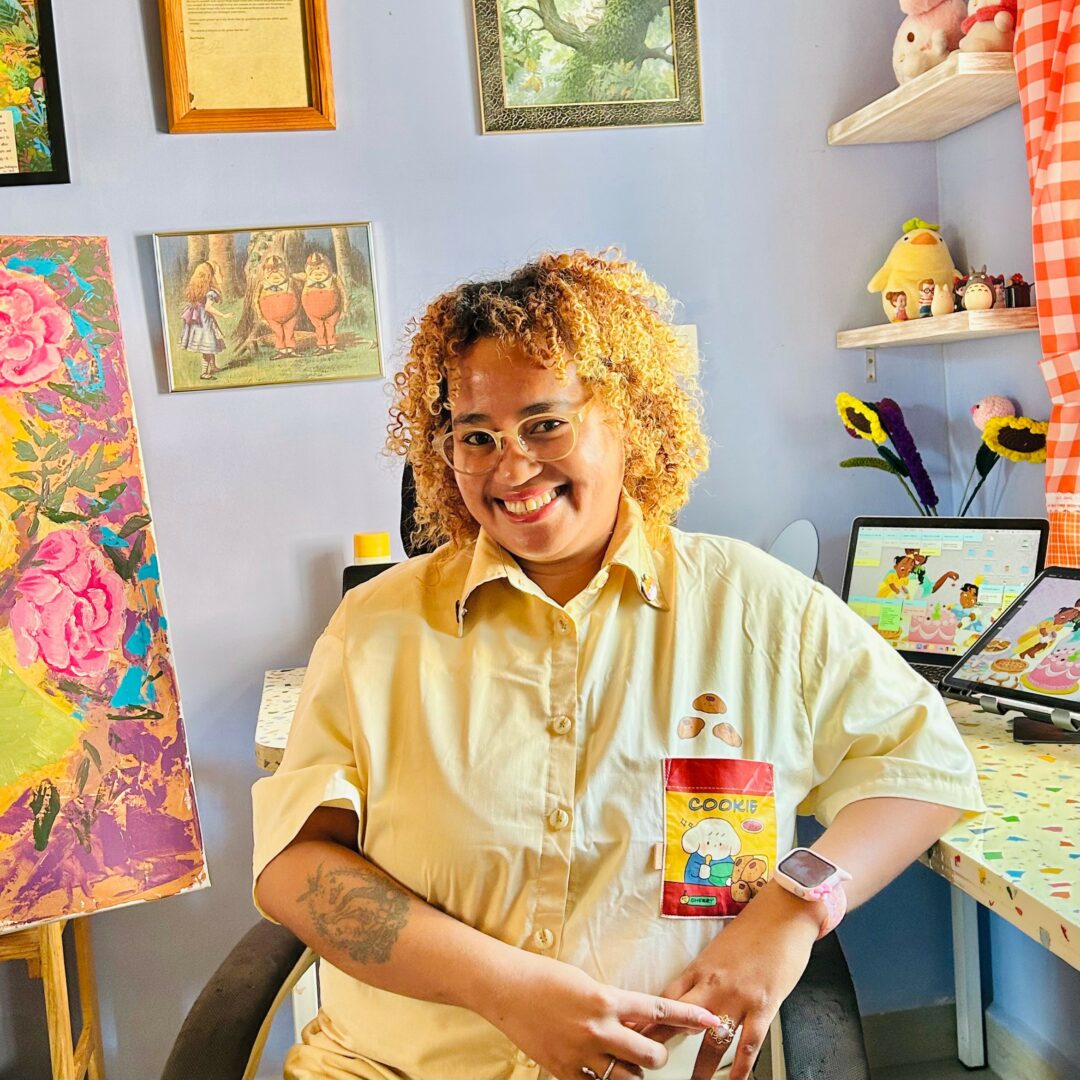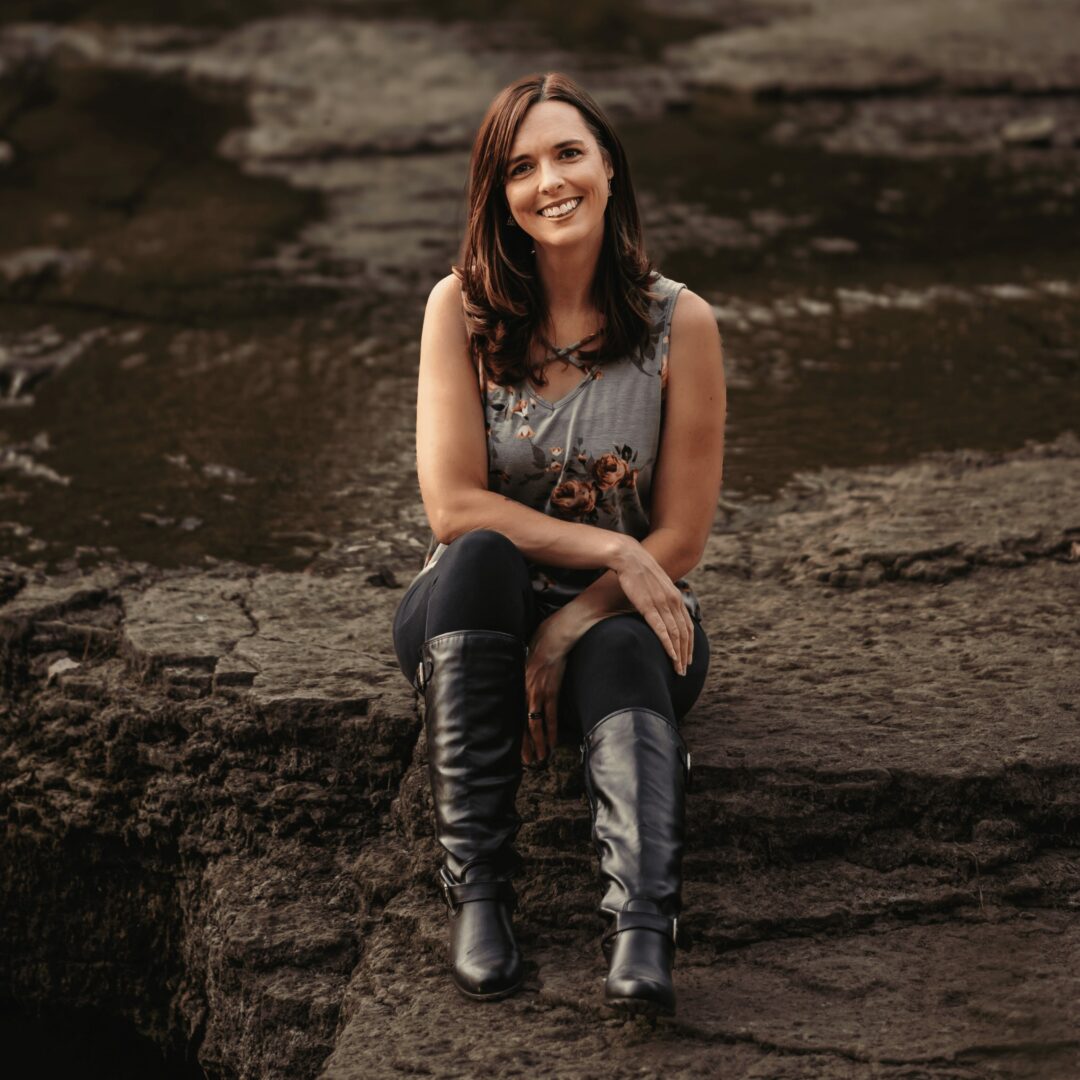Alright – so today we’ve got the honor of introducing you to Benjamin Dierker. We think you’ll enjoy our conversation, we’ve shared it below.
Hi Benjamin, thanks for sharing your insights with our community today. Part of your success, no doubt, is due to your work ethic and so we’d love if you could open up about where you got your work ethic from?
My work ethic is definitely rooted in faith and family, and is something I carry into my professional work at the Alliance for Innovation and Infrastructure. Conducting research and providing education of the highest quality is at the core of what we do at Aii.
A few factors come to mind immediately when I think back on my work ethic. I was raised by a reader and a writer. As long as I can remember, my mom had a book in her hand. I regularly tell people that she reads more books than just about anyone I know. I think her love for reading and her insatiable appetite for literature made an indelible mark on my young brain. Perhaps equally so was my dad, who more editor than writer; but there was no doubt that words were his craft. From modeling diligent, tireless, often silent work, service, and sacrifice to dinner-time questions like “what did you accomplish today?,” my dad helped fuel the work ethic I have today.
Of course, I can’t forget my siblings. As the youngest of four, I had two huge advantages. The first was learning from the successes and challenges they already faced in life and being able to navigate similar situations confidently. In some ways, this was like drafting or slipstreaming behind them as they forged a path forward in life. The second was the reverse side of this coin. My siblings – eagle scouts, marching band drum majors, national merit scholars, and later to be military officers, investment bankers, and even White House aides – set high standards and challenges to meet or exceed if I could.
Much of this was unstated, but surrounded me and helped mold the work ethic I would come to inhabit.
Of underlying and more foundational importance is faith. Once more to my parents credit, I was raised in a Christian household with a proper understanding of who we are as people – both broken and redeemed. The very first act was work. God created the heavens and the earth, modeling both work and rest. He created man in His image, which reflects both His spiritual nature and aspects of His character. He commissioned mankind to work – to cultivate the land and have dominion, to make the unfruitful fruitful. It is with this fundamental understanding that I go about doing work of the highest quality to serve people and glorify God.
My work ethic is a reflection of my upbringing and my faith. Today, I think, read, write, and talk about economics, law, and public policy for my day job. But this is the outgrowth of years of influence and sharpening from my parents, my siblings, and scripture. I learned useful skills, tips, and tricks to improve my work through school, but the mentality and value system that sees work as inherently valuable and worth applying for the benefit of others, that came before.
Appreciate the insights and wisdom. Before we dig deeper and ask you about the skills that matter and more, maybe you can tell our readers about yourself?
My work today is leading the Alliance for Innovation and Infrastructure, the only nationwide public policy think tank dedicated solely to infrastructure. This organization is equal parts research and education, and as a nonprofit think tank, Aii offers resources to everyone from students to specialists and industry leaders to public policymakers.
Aii exists to help foster innovative solutions to current and future infrastructure challenges and educate along the way. We do so by exploring the intersection of economics, law, and public policy in the areas of climate, damage prevention, energy, infrastructure, innovation, technology, and transportation.
I knew from early on in college that I wanted to work in the academics-mixed-with-politics world of think tanks. I set out on a pathway that I tailored specifically for that purpose. At Texas A&M University, I majored in economics and also engaged in numerous campus political and journalistic organizations. Before leaving College Station, I spent two fascinating years at the Bush School of Government and Public Service, where I earned a master of public administration degree. It was during this graduate program that I first linked up with Aii, initially as a lowly intern doing fact-checking, researching, and writing. I was then blessed to matriculate at the Scalia Law School at George Mason University, where I took courses in administrative law, economics, and public policy.
By the time I finished my formal educational plans (for the time being), I had delved deeply into each of the analytical realms of the think tank world I intended to pursue. The coursework, peers, and professors I was exposed to helped me see different aspects of economics, law, and public policy and to import that into my professional career. At Aii, these are the cornerstones of our work. We ensure that any research or analysis adequately evaluates the economic and legal factors inherent to any public policy reform. Where things get interesting – or boring for some – is the application to infrastructure.
The name Aii was specially selected by its founder. Alliance for Innovation and Infrastructure pairs two words not usually heard in concert. People think of “innovation” as technological and high-paced, while “infrastructure” is just the old, dusty, and inflexible things we drive on or that supports things behind the scenes. Bringing these together underscores the importance of advancement and integrating the latest and greatest technology into the systems and structures that facilitate modern life. Where I come back in is seeking to validate the technologies and techniques that are available to improving our world so that more people have safe transportation, reliable access to power and water, sustainable supply chains, and overall ability to flourish.
I bring all my education to bear when evaluating industry best practices, public policy challenges or reforms, and global topics ranging from climate to energy changes. As an independent organization, Aii takes our role seriously in being able to offer clear-eyed, effective, and well-supported analysis of technology, best practices, policy options, and infrastructure itself. We want to see a safer and more prosperous world, and we think that starts with integrating innovation and infrastructure and being able to clearly communicate it to the public.
The team at Aii includes individuals with experience in economics, law, regulatory agencies, private corporations, military service, nonprofit work, and more. Through this dynamic set of eyes, we give our nation’s infrastructure a thorough analysis and hope to educate and inform decisionmakers and leaders so that we can chart the best path forward as a nation.
There is so much advice out there about all the different skills and qualities folks need to develop in order to succeed in today’s highly competitive environment and often it can feel overwhelming. So, if we had to break it down to just the three that matter most, which three skills or qualities would you focus on?
I believe the first quality that was most impactful in my journey did not come to me through any effort of my own. I truly think God changed something in my mind, because just before beginning graduate school, I suddenly and inexplicably gained an ability to read long, dry, and dense material. I had read a bedside table’s worth of fiction and history before grad school, but never had the aptitude or interest in anything serious. Then like the flip of a switch, in the summer leading into my time at the Bush School, I could sit and read just about anything. It was almost like a software update – I just got a new functionality. From that time on, I’ve read everything from ancient classics to philosophy and theology and more legal and regulatory codes than I can count. It has served me well and been critically important in the work I do. If I can’t read through long and sometimes confusing legal language, industry reports, or the history of a particular policy, I couldn’t successfully analyze it and offer insights to others.
Following from that, I think the skill of writing and editing has been essential. Sometimes the best way to help someone else is taking something complicated and clarifying it for them. Writing and editing are the companion skills that help accomplish that. Not everyone has the time or aptitude to read a federal report or a research paper, but someone in my role can read it and condense the important items into a more compact and readable format. In the research and educational role I hold at Aii, I am able to read many things, then write and edit down information so that it’s accessible to students wanting to learn, the general public hoping to be informed voters, industry leaders seeking validation on best practices, or public policymakers and lawmakers needing fact-based and data-driven analysis of critical infrastructure challenges.
Okay, so before we go we always love to ask if you are looking for folks to partner or collaborate with?
The short answer is yes. I am always looking for folks to collaborate with at Aii. Because the Alliance for Innovation and Infrastructure is a think tank, we have a number of ways to engage with the public and with partnering individuals and organizations.
The most immediate and helpful way is to support our work. Aii includes two nonprofit organizations, meaning there are options available for individuals to make tax-deductible donations at Aii.org that support our educational efforts toward the general public, leaders, and even students and parents. We also have non exempt donor options that are better suited to corporate or foundation level support, such as research grants and endowments.
The work we do at Aii and the reason we do it should provoke curiosity and interest from the public and industry groups. Aii is an independent organization without political or partisan agendas and without taking orders or direction from anyone. We exist to ask questions about the world, undertake serious and critical research, and provide well-sourced, data-driven validation of best practices and policies that will improve our infrastructure, transportation, energy, and related systems in the United States. Financial support directly translates into this type of research and education because we do not maintain expensive overhead like corporate campuses or headquarters locations. Our entire team is remote, spread across the country, and embedded in the real and everyday life of Americans, using our infrastructure, and engaging with experts and specialists to enlist novel solutions that improve our own understanding of the world.
All of that is squeezed back out like a sponge. We take support, donations, and grants, and turn them into research and educational resources for the public, business leaders, regulators, and elected officials.
Of course, if financial support is not the right avenue for you, we also want to engage with experts and anyone with insight. Whether you’re someone with decades of blue-collar experience or an executive with a managerial background or someone who has spent time in a regulatory environment, we would love to hear your stories and even get your insights in front of the right people.
Lastly, I would invite anyone and everyone to head over to Aii.org. Another one of the best ways to collaborate with us is to simply view, experience, and interact with the resources we create. It is all for you.
Contact Info:
- Website: https://www.aii.org/
- Instagram: https://www.instagram.com/aiinonprofit/
- Facebook: https://www.facebook.com/AiiNonProfit
- Linkedin: https://www.linkedin.com/in/benjamin-r-dierker/
- Twitter: https://twitter.com/BenDierker
- Youtube: https://www.youtube.com/c/AiiNonProfit
- Other: https://linktr.ee/aiinonprofit








Image Credits
All photos are own or generated by Alliance for Innovation and Infrastructure (Aii.org)




